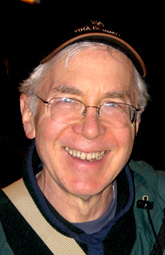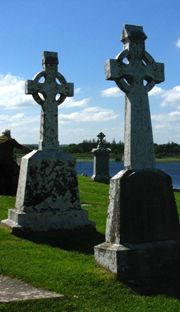Healing the Spiritual Wounds of War

By Taliesin Nyala 07F
From the earliest times, humans have been inspired by stories, not just as simple tales but as metaphors for explaining mysteries of the soul.
 |
Professor of Humanities Robert Meagher is one such person inspired by the ancient words of Homer, Euripides, and others, and brings those stories to bear in his work on understanding the "spiritual wounds of war" suffered in combat.
We often think of trauma as something suffered by those who have been the objects of violence—but those who perpetrate violence are also traumatized. Both groups contribute to the high rates of depression, post-traumatic stress disorder, and suicide in soldiers after they have returned home. The spiritual wounds of war result most often from being a perpetrator of violence, something most humans instinctively avoid.
"Inflicting violence on others, especially on innocent civilians, can cause trauma that psychiatry has no way of dealing with," says Meagher. "You can't take another's life without taking something from your own life. My theological training reinforces and helps me to understand this conviction."
Meagher teaches ancient studies and comparative religion, and he brings this knowledge to his work with psychologists and veterans. Taking a page from ancient Greek tradition, in 2006 he organized a major six-week program of events in the Pioneer Valley: "Nostoi: Stories of War and Return" featured lectures, symposia, film screenings, workshops, and exhibits on homecomings from war (nostoi is Greek for "homecomings").
Western Massachusetts is home to large numbers of both antiwar activists and veterans, and Meagher's goal was to facilitate discussion between the two across the divide of their different perspectives. "Both sides said it was utterly transformative for them," he says.
Beginning this fall, Meagher will co-direct a project funded by the Mass Humanities and the National Endowment for the Humanities to use literature to help veterans and their caregivers address the wounds of war.
He is passionate about this work, and says, "In the Vietnam era my brother was a soldier and I was an anti-war activist. In many ways, the Vietnam War has been with me my entire adult life, as it has been with our country. Everyone who sends soldiers to war participates in the war—we all bear the responsibility."
 |
Far from all of his work is combat related. For the past two years, he has taught an annual two-week course in Ireland, guiding a small group of students to pre-Celtic, Celtic, and Christian sites in an exploration of the ways these spiritualities have flowed together.
His nearly encyclopedic knowledge of Ireland comes in part from his experience living and working there on multiple occasions. During two such years, as a visiting professor at Trinity College, he had access to the university's Old Library and could watch as a page was turned in the Book of Kells every morning. Meagher is full of stories for his students. He takes the ancient and makes it relevant, and those stories ignite the imagination and inspire the spirit within.

